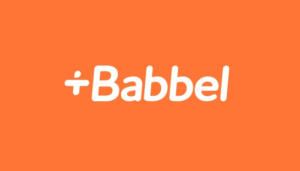HOSTGATOR
6 min read
What Is Website Hosting?
When you purchase a web hosting service you’re essentially buying yourself space to store your website’s files. These files can then be accessed by a web browser, in order for your website to be live on the internet.
Web hosting is offered by various service providers like Hostgator who have the necessary technology to properly store your site’s files. By signing up for a hosting service you’re essentially renting space on a server that their web hosting companies own and manage.
Since most people or even businesses don’t have servers of their own, they rent out server space from a third-party web hosting company.
A server is a physical computer that runs 24/7, so your site’s files can always be accessed without interruption in service. These servers are loaded with the necessary hardware and software that your website needs to function.
How Does Web Hosting Work?
our website is just a collection of different files. When you create a website you need a place to store all of these files. That place is your hosting company’s server.
On this server, you’ll store your website’s media, files, databases, and anything else required to properly render your website. Exactly how much storage you have will depend on the hosting plan you choose.
If you’re just getting started online, then you’ll probably just be renting a portion of a server that you’re sharing with other websites. As your storage and traffic needs increase, then you may need to scale up to renting an entire physical server—or at least using the resources of one, with a cloud or VPS server.
When you sign up for a web hosting package you’ll usually get access to the server via a solution like cPanel. This makes it easy to upload your files to the server. Or, you can install a CMS like WordPress to easily build out your site.
In order to have a fully functioning website, you’ll also need to register a domain name. Once you purchase this you’ll point it towards your server, which lets the web browser know that this is where your files are located.
Then, when a person types in your domain name or clicks on a link to your site, the web browser gets the files from the server and displays them for the viewer. All of this should happen in a few seconds or less. If this process takes too long, then you either need to speed up your website or consider switching hosts entirely.
Different Kinds of Web Hosting
Most web hosts will offer various forms of hosting packages. Each type of hosting will cater to different website needs. For example, a site that gets millions of visitors per month will have different requirements than a site that was built a few weeks ago.
Shared Hosting
Shared hosting is easily the most common form of hosting. It’s also probably the most suitable style of hosting for a lot of website owners. With a shared hosting plan, you’re sharing the physical server environment with dozens to hundreds of other websites and sometimes even more.
However, the server is partitioned, so your site is secure from other websites using the same server. Since you’re effectively splitting server resources with other users of the same server your costs will be very low.
Websites that have low to moderate traffic levels will be fine using a shared host. Since this is the most beginner-friendly option you’ll be able to manage your hosting environment, install a CMS, setup email, and a lot more, all without any technical skills.
VPS Hosting
Do you know what VPS hosting services are? VPS stands for Virtual Private Server. This style of hosting relies upon something called “virtualization”. This allows you to use the resources of multiple different servers, but it all acts like it’s a single server. So, essentially you can tap an entire network of servers and scale those resources up or down as your needs change.
Cloud Hosting
Cloud hosting is a relatively newer form of hosting. However, it’s risen quickly to become one of the premier forms of hosting available today. In case you don’t know what cloud hosting is, it’s when your website is hosted on multiple different servers simultaneously.
The physical servers are partitioned into cloud clusters. This is beneficial because if one of the servers becomes overloaded, then the traffic will be automatically routed to another cloud server within the cluster.
With cloud hosting, you get an extremely reliable form of hosting. Plus, it’s very flexible and can be scaled up or down in real-time, so you only pay for the server resources you’re currently using.
Dedicated Server Hosting
Dedicated hosting is exactly like it sounds. You’ll get access to the resources of an entire physical server. Dedicated hosting is generally the most expensive as you’re not splitting server costs with other websites (as you do with shared hosting).
This style of hosting is usually reserved for websites that either receive a very large volume of traffic or require a unique server configuration. Since you have access to the entire server you’ll be able to run whatever software configuration your website requires.
With dedicated hosting, you’ll get incredible performance and enhanced security. However, you might need the technical skills, or the team behind you, to effectively manage your server environment.
Beyond dedicated hosting, you also have the option of managed hosting. Where you can have the hosting team help to manage and optimize your server for you.
WordPress Hosting
If you run a WordPress site, then you’ve probably come across WordPress hosting. You can easily run your WordPress site on multiple types of hosting environments. But, you also have the option of WordPress managed hosting, which is completely custom-tailored to the WordPress platform.
If you have a pretty small site and you’re not getting much traffic, then you probably won’t notice a difference in performance. But, if your traffic levels are increasing and your site only continues to grow, then you could see a decent improvement in performance.
Even if you are sharing web server space you’ll be sharing that space with other WordPress sites, so the server will be uniquely configured to get the most out of it.
Beyond improved performance and server optimization, this type of web hosting is also important for your overall security. By only running WordPress it’s much easier to protect against attacks that specifically target the WordPress platform. Not only that you’ll have a team of skilled experts behind you who are working to optimize your site, and the servers it runs on.
What to Look for in a Web Host
Every web host isn’t created equal. The host you choose will have a dramatic impact on how your site performs, its uptime, and your overall site management experience.
Here are some of the factors you’ll want to look for when choosing a web host.
For starters, you’ll want a host that actually offers the kind of hosting you need, and is within your budget. Sure, you might want to opt for the highest level of WordPress hosting available, but if you’re just building out your first site, then a general shared host will be fine.
Beyond that, here are some specific features to look for:
- Bandwidth/Traffic – Your bandwidth is the amount of traffic you receive each month, along with the number of pages each person views. You’ll typically want to select a web hosting plan that can support your maximum bandwidth needs.
- Storage – Website files are generally pretty small, but if you’re storing a lot of user data, videos, or other media, then you’ll need to make sure the provided storage is sufficient.
- Uptime – Most hosting providers will list their uptime as a percentage. It’s typical to have 99.9% uptime. But, some websites might require 100% uptime.
- Email accounts – Usually, your web hosting provider will allow you to create a domain associated email address. Some hosts will provide this for free, while others will charge you.
- FTP – FTP lets you upload files directly from your computer to your server. You might not require this function, but some users will demand it.
- Support – It’s always good to know that a support team has your back. Look for a quality support staff that goes the extra mile to ensure any issues are solved in a timely manner.







owiNeLKvkygEUz
Insightful read! I found your perspective very engaging. For more detailed information, visit: READ MORE. Eager to see what others have to say!
Good write-up, I¦m normal visitor of one¦s web site, maintain up the excellent operate, and It is going to be a regular visitor for a lengthy time.